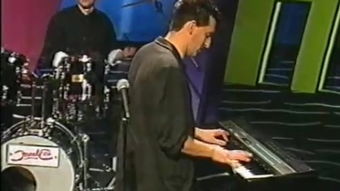Home Fishing Mastery: Why the Lure Keeps Eluding You and How to Break the Spell

Fishing, an age-old pastime, has been a source of relaxation and joy for countless individuals. Whether you're a seasoned angler or a beginner, there's always something magical about the anticipation of catching your next big catch. However, many anglers find themselves struggling with a common dilemma: despite spending hours on the water, they're often left empty-handed. The question on many minds is, "Why am I always struck out in the home fishing game?" In this article, we'll delve into the common pitfalls that lead to a lack of bites and offer practical tips to help you become a master of the home fishing craft.
Underestimating the Basics
One of the most common reasons anglers struggle to catch fish is by overlooking the basics. Before we dive into the advanced techniques, it's crucial to ensure that you have a solid foundation. Here are a few fundamentals to keep in mind:
a. Understanding Your Fish: Different species of fish have different preferences and behaviors. Research the species you're targeting and understand their habits, such as their preferred water temperature, feeding times, and habitats.
b. Choosing the Right Gear: Using the wrong rod, reel, line, or lure can make the difference between a successful day and frustration. Invest in quality gear that suits the species you're targeting.
c. Learning to Read the Water: Understanding water conditions, such as clarity, depth, and structure, is essential. Pay attention to subtle changes in the water that might indicate fish presence.
The Lure Conundrum
The choice of lure can be the make-or-break factor in your fishing success. Here are some common pitfalls and how to overcome them:
a. Overcomplicating Your Lure Selection: It's easy to get carried away with the countless lure options available. Stick to a few tried-and-tested patterns that match the natural prey of the fish you're targeting.
b. Lack of Motion: Fish are curious creatures. A lure that lacks motion is likely to go unnoticed. Experiment with different retrieve techniques to mimic natural movements.
c. Timing: Timing is everything. If you're fishing during the wrong season or at the wrong time of day, you might not get a single bite. Learn the peak feeding times for your target species and adjust your fishing schedule accordingly.
Overlooking the Environment
The environment plays a significant role in fishing success. Here are some factors to consider:
a. Weather Conditions: Wind, rain, temperature, and cloud cover can all impact fish behavior. Fish may be more active or more cautious depending on the weather.
b. Water Conditions: Water temperature, clarity, and flow rate can all influence fish behavior. Be mindful of these factors and adjust your approach accordingly.
c. Habitat Changes: Changes in the habitat, such as fallen trees, rocks, or vegetation, can create excellent fishing spots. Take the time to explore different areas and look for these natural structures.
Technique Missteps
Even with the right gear and environment, poor technique can still lead to empty hands. Here are some common mistakes to avoid:
a. Casting Errors: Inaccurate casting can lead to missed opportunities. Practice your casting technique to ensure you're reaching your desired spot.
b. Overlining: Excessive line on the water can spook fish. Keep your line tight but not so tight that it looks unnatural.
c. Ripping and Pumping: Aggressive retrieves can sometimes spook fish. Instead, try a slower, more natural retrieve that mimics the movement of real prey.
The Mental Aspect
Lastly, the mental aspect of fishing should not be underestimated. Here's how to keep your head in the game:
a. Patience: Fishing requires patience. Don't get discouraged by a slow start. Fish may be present but not actively feeding. Stay focused and be prepared to wait.
b. Mindfulness: Practice mindfulness to stay present and enjoy the experience. This will not only improve your chances of catching fish but also enhance your overall enjoyment of the sport.
Conclusion
Mastering the art of home fishing is a journey that requires patience, practice, and a deep understanding of the elements at play. By addressing the common pitfalls and implementing the tips outlined in this article, you'll be well on your way to becoming a more successful angler. Remember, fishing is as much about the experience as it is about the catch. Embrace the process, and soon you'll find yourself reeling in more than just memories. Happy fishing!












